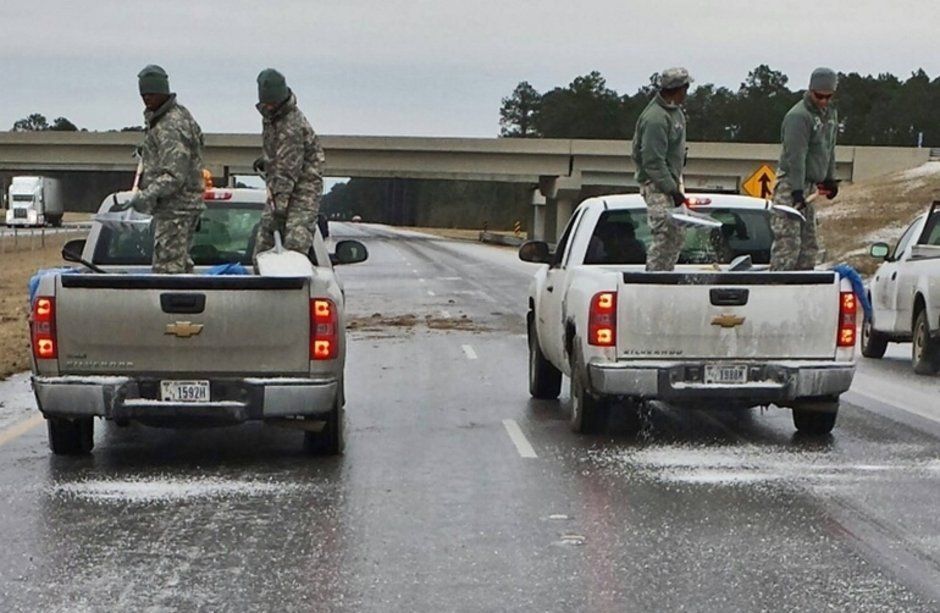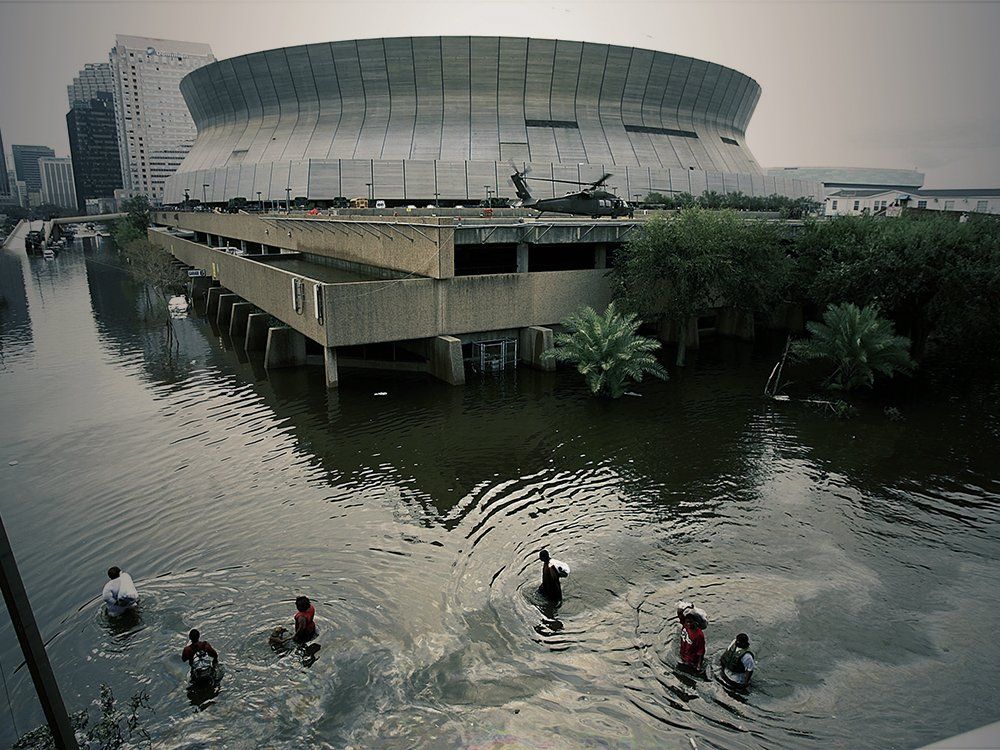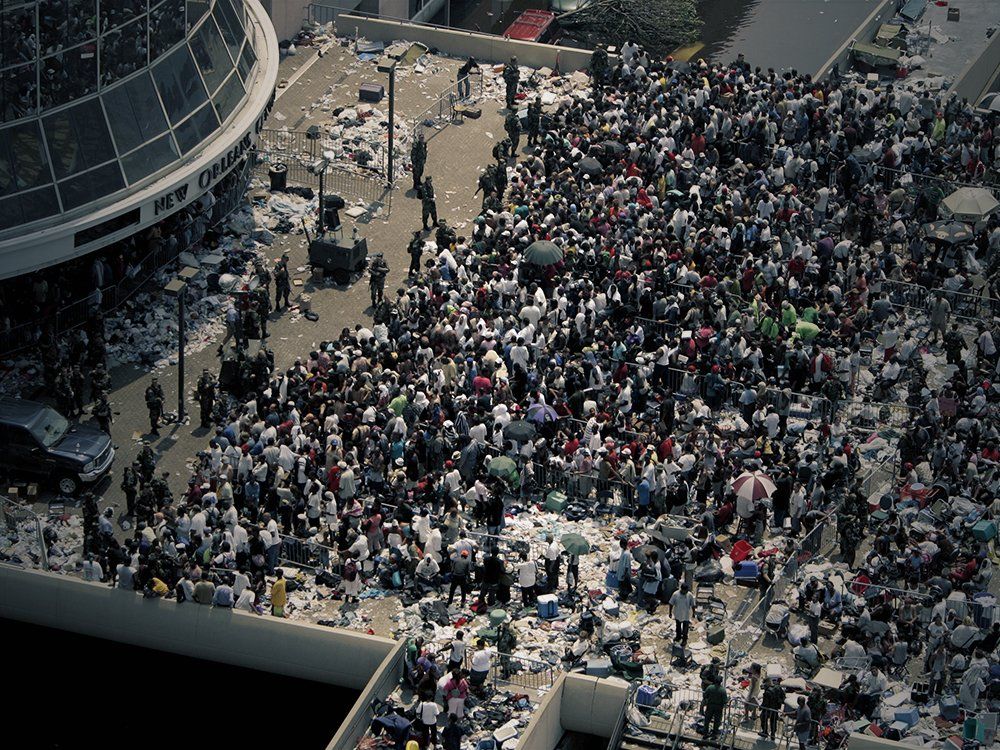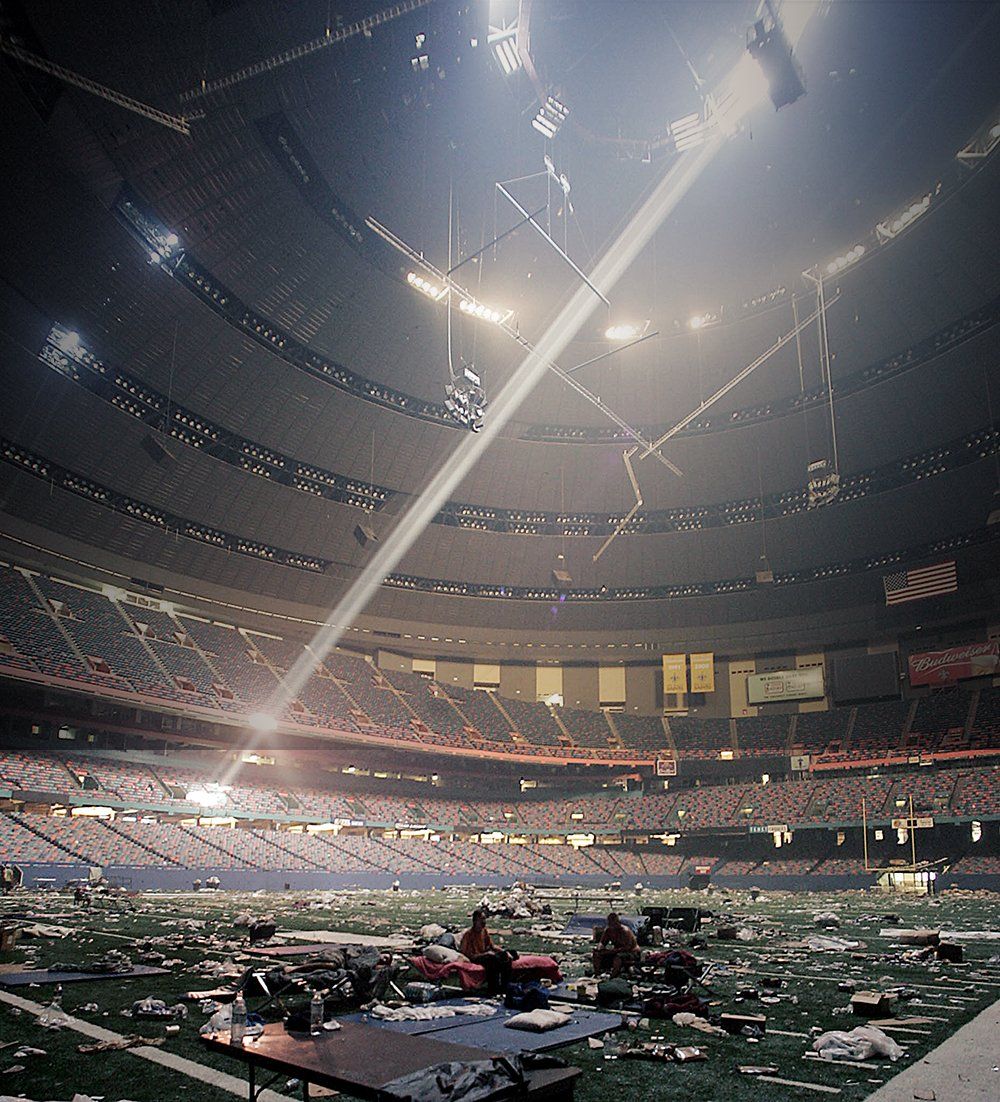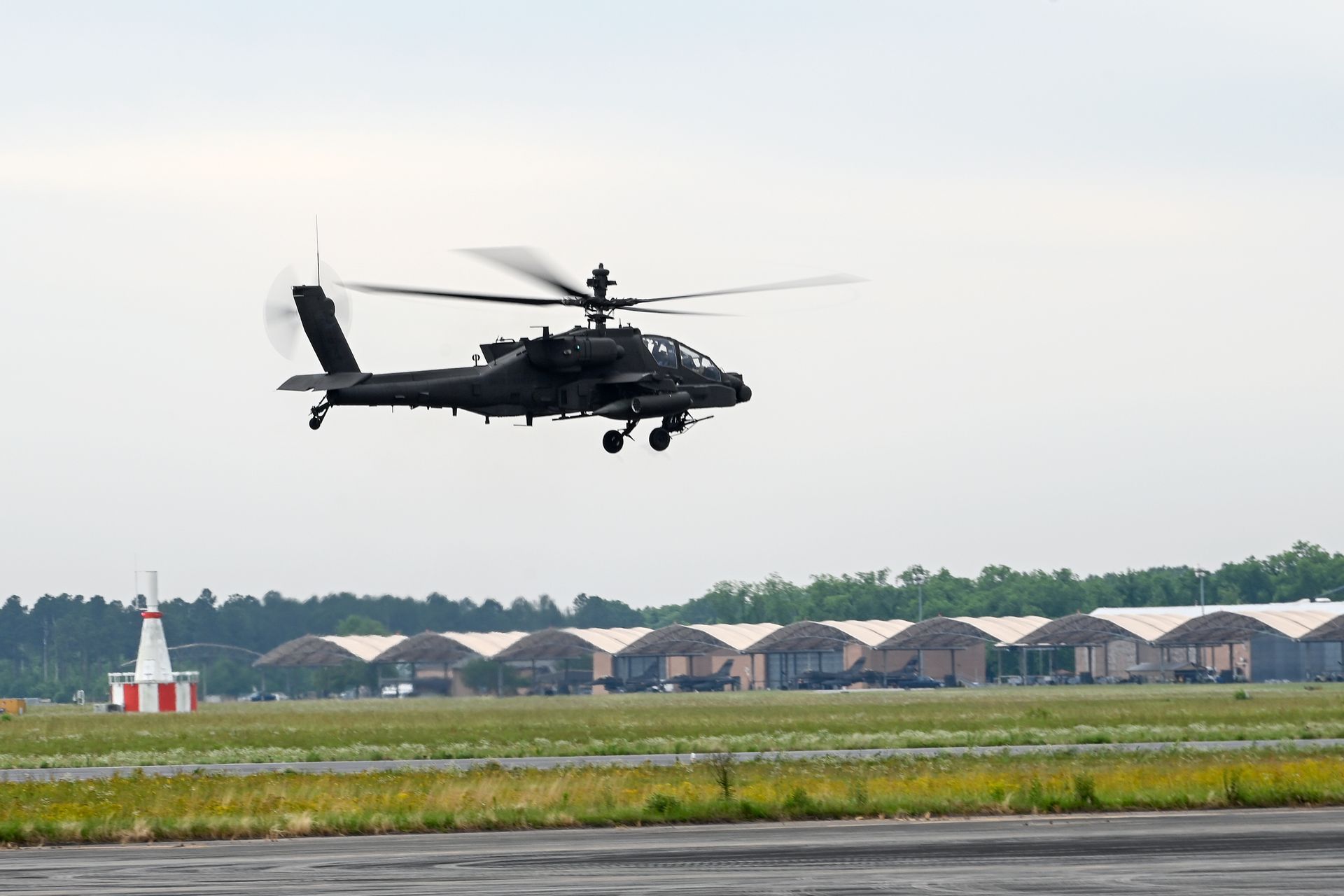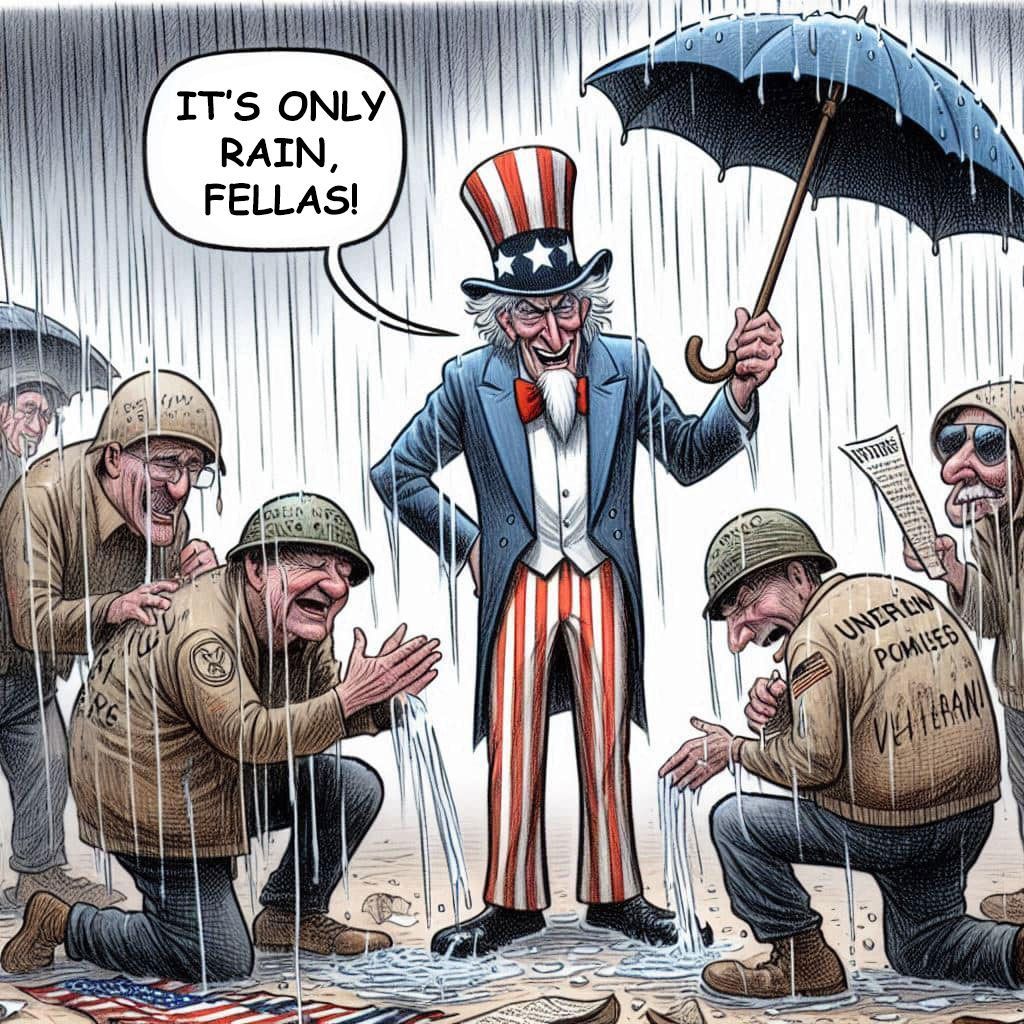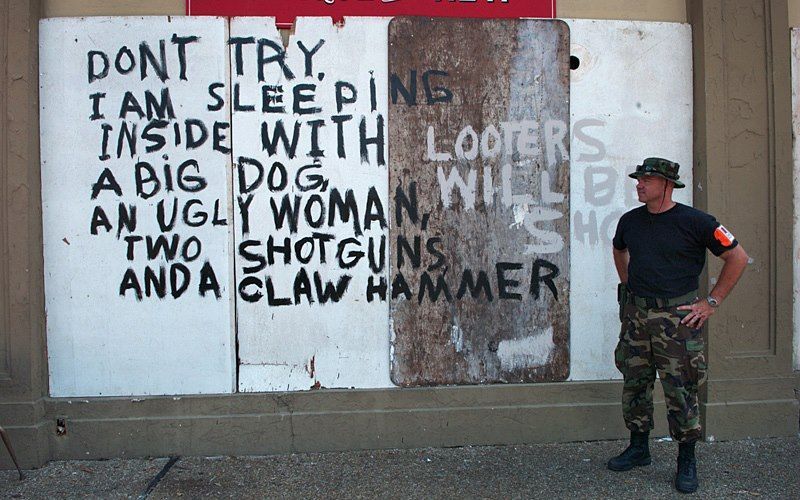The Concerns With Using the National Guard as First Responders
Ben Banchs • May 29, 2020
Ultimately, it's about money, not emergency response....
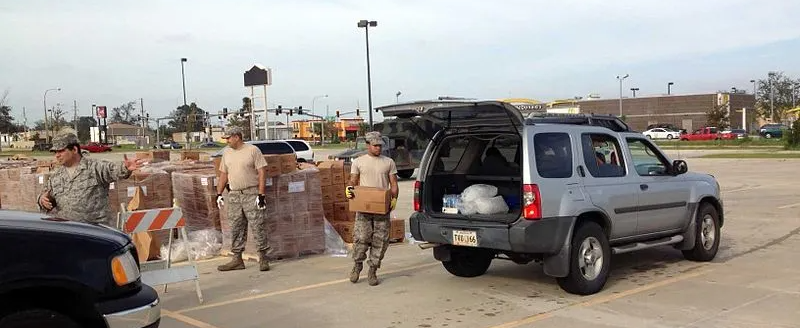
With the current developing situation in Minnesota it seemed appropriate to discuss the use of National Guard men and women in responding to domestic emergencies.
"We've activated the National Guard...."
A short phrase, and one that carries so many implications for the Guard folks that get activated. It's a phrase that has become very familiar to the public over the last 20 years. After the 9/11 attacks, it was for airport security and to guard the skies from follow-on attacks. After the invasions of Iraq and Afghanistan, it was to serve on the front lines along active duty. Then came Katrina, Rita, Ike, Gustav, Maria, and every other hurricane and natural disaster since, and each time the Guard is activated. Now, if it floods in the Midwest, "we've activated the National Guard." If there's a blizzard in the Northeast, "we've activated the National Guard." Fire breaks out in California, "we've activated the National Guard." COVID-19? Yes, they've activated the National Guard. Now, in Minneapolis, the Guard is once again on the front lines of a domestic emergency. But what does that really mean to all involved?
While it may surprise some, the average Guard member is not necessarily a trained first-responder because the vast majority of them are in the business of either combat, maintenance, or in support of one of these two functions. In other words, a tank or aircraft mechanic is not a "trained first responder" in any way because the Guard was not created to respond to emergencies. The modern-day Guard, as created by the
Military Act of 1903, the Dick Act, is there to train on, use and maintain US military equipment, and to augment the regular military components in time of war. Domestically,
the Guard's role had primarily extended to situations involving security and the protection of life and property, as they're now being used in Minneapolis. Relying on the Guard to the degree that we do today to respond to natural or man-made disasters is something that didn't really start until the 90's
in response to Hurricane Andrew. Even after Andrew, the Guard's role in first response was limited. Katrina became the catalyst for reinventing the National Guard into the first response force it is now portrayed to be.
Does the Guard have equipment and personnel that can have a dual military/civilian use? Yes. Large military transport vehicles can access areas impacted by high flood waters, helicopters are invaluable for search and rescue, and Guard military police units can easily be incorporated alongside local law enforcement. Other specialized units within the Guard can also be used in response to things like chemical, biological, radiological, nuclear and explosive (CBRNE) disasters. However, outside of these scenarios, and unless they have personally acquired some type of first-response experience in the civilian world, most Guard members are not trained by the military in first response of any kind, not even CPR. Even right now in Minneapolis, we don't necessarily know what type of Guard unit was activated. Governor Tim Walz is former National Guard so he knows the Guard better than most and one would hope he activate the right personnel. Otherwise, he would be putting both the public and Guard members in a dangerous situation. The point is, to blanket-label the National Guard as a pool of trained first responders is ambitious at best, misleading at worst.
This doesn't stop governors and other public officials from making the claim because, ambitious as it may be, the label "first responder" serves as a very effective way to secure tax-payer funding (mostly federal) and stay relevant. This funding provides governors with the ability to throw large numbers of very cheap manpower (bodies) at an emergency situation in a short amount of time, ideally on the Federal government's dime, to be used for all manner of taskings that would normally be performed by a state or local agency. For example, in late January 2014, the Southeast was hit by freak winter storm Leon. The storm caused major disruptions and the National Guard was activated in several states, tasked with distributing food, helping stranded motorists, and rescuing citizens. All noble tasks, no doubt, but also tasks that can and should have been performed by civilian agencies like law enforcement, the department of transportation, the department of health and human services, and non-profits like the Red Cross. One of the most glaring examples of how not to use the Guard came from Louisiana. The photo below (taken from the link) was released nationally to spotlight how the Guard responds to emergencies, and it really captures the severity of the situation. A freak winter storm catches authorities by surprise and the Guard comes to the "rescue" - all neatly packaged like an episode of Law and Order.
But once you come down from the "Go Guard" high and really stop to examine the photo, a lot of questions come to mind. For example, why is Louisiana using members of the National Guard to salt roads instead of the department of transportation (LA DOTD)? Isn't the LA DOTD staffed and adequately prepared for a major winter storm? Do they not have enough employees or equipment? Louisiana experiences winter conditions every year so they should be more than capable of responding, so what's really going on? And, even if we assume that LA DOTD was not prepared for the storm, is this really the solution? To fill the bed of National Guard-owned pick-up trucks with rock-salt and drive down the interstate while soldiers stand up unrestrained in the back of a moving vehicle as they shovel salt, by hand, onto the road? This is the best idea someone came up with? This is how our tax dollars are spent? Forget for a second that there is no job in the Guard that trains anyone to stand in the back of a moving pick-up truck and shovel salt onto a roadway. However, even if you make the argument that it doesn't take much skill to shovel salt onto a road, the conditions are unnecessarily dangerous, so why even do it? The truth is that this is not an example of the Guard as first responders, this is an example of the state using the Guard because the cost and liability of using these personnel is much cheaper than using LA DOTD employees and paying them overtime. It definitely makes for good PR, though.
Unfortunately, this happens all the time. Whether it's handing out food and water, driving school buses with evacuees, staffing or securing shelters (like the Superdome during Katrina, which turned out to be a disaster), cleaning nursing homes in response to COVID-19, or augmenting local law enforcement, the increased reliance on the National Guard to perform these types of functions not only creates a false sense of security for the public, it also places our Guard men and women in danger because they not only lack the training, expertise, and (often times) proper equipment, they are also placing the citizens they interact with at risk of injury or death. Except during unforeseen
emergencies, like a tornado or a terrorist attack, most other situations provide state leaders with ample notice to allow for the identification and use of the appropriate civilian personnel, not the Guard, to respond. For example, if there's a hurricane over water or a developing snow storm, modern day forecasting provides ample warning so that states can position and utilize local law enforcement as well as employees and equipment from other responsible agencies and even private firms and non-profits to respond to whatever the emergency calls for. Even during Katrina, we had days of warning. What we didn't have was a solid plan at any level of government. Unfortunately, the folks on the ground are the ones that ultimately pay the price of poor planning and even poorer leadership.
Even in Minnesota right now, is there really a need to activate 500 Guard members, or is it more of a public relations/show of force tactic? There's also the matter of escalation symbolized by military-type personnel patrolling on US soil, which begs the question, is there really a need for it? Think about Kent State University in 1970, when four unarmed students were shot dead and nine others wounded by Ohio National Guard troops
that indiscriminately fired into a crowd of demonstrators, allegedly in fear for their lives. It was definitely a tense and chaotic situation, but perhaps the reason for what happened had more to do with a lack of leadership and training and less to do with the actual demonstrations. Specifically, why would the on-scene commander allow his troops to be put in a position where they were cornered by the students on the football field for about 10 minutes, the whole time under a barrage of rocks and other objects? Eventually, the Guard soldiers were ordered to retreat from the field, but, as they backtracked, the situation escalated beyond anyone's control resulting in the shooting and four dead students, one of whom wasn't even involved in the protest, she was just trying to get to her next class. The point is that the Guard was placed in an impossible situation and it didn't have to be that way. They shouldn't have been there at all.
Fast forward to Minneapolis. According to Wikipedia, in 2008 the US Bureau of Justice reported that Minnesota had "448 law enforcement agencies employing 9,667 sworn police officers, about 185 for each 100,000 residents." Assuming the figures are still fairly accurate, and recognizing that the near-10,000 number is statewide and not all would have legal jurisdiction in Minneapolis, the state could still bring in officers from other jurisdictions under an emergency declaration to help in the response. Using trained law enforcement personnel would be a better approach than to activate the Guard. But, why go through the trouble of bringing in other law enforcement agencies, paying them regular pay plus overtime and probably some type of hazard stipend, and having to deal with the police union and potential complaints and lawsuits from citizens and business owners when you can activate the Guard for a fraction of the cost and not have to worry about most of those other issues? Exactly.
Training aside, the men and women of the Guard always rise to the challenge. That's not a tribute to the Guard so much as it is a tribute to the everyday people who serve their community, the individual soldiers and airmen who find a way to get it done every time, often times in the most dire of circumstances, and sometimes in spite of bad leadership. They get it done, nonetheless, and they do it because they want to be part of the solution...because they want to help their community and fellow citizens. And that's the truly frustrating aspect of all this. They don't mind doing it, but if they're going to be asked to respond, all they ask from the higher ups is to give them the proper tools, training and equipment, to have a solid plan, and to take care of them with adequate pay and benefits. You can't control Mother Nature, for example, but you certainly should be able to control or at least be prepared to respond to her.
The public may feel safer because they think "1,000 trained, well-equipped, and ready members of the Guard" are manning their posts, but in reality, what you may often have is a hodgepodge of next door neighbors, men and women in military uniforms, running around doing someone else's job, with limited to no first-response training, ill-equipped, with little idea what their "emergency" function is from one day to another, often times sitting idle doing absolutely nothing because there aren’t enough taskings or missions to go around, and then worried whether they're going to get paid or not (that's a discussion for another day).
There's one other aspect that's overlooked, especially by the general public, and that's that since Guard members are also citizens of the same community where they're usually asked to respond to emergencies, these activations usually force members to leave their families behind to fend for themselves. This is true every time. Even during Katrina, when tens of thousands of Guard troops were sent from other states to help, the Louisiana National Guard did not release their folks to go home. This was because, since the response to the initial call-up was such a disaster, senior leaders were worried that if they released people to go home to deal with their own families and flooded houses, that they wouldn't come back (they were right - many probably wouldn't have). For that reason, when Rita started approaching the Louisiana coast a few weeks after Katrina hit, Guard leaders actually locked their folks down on base for days to make sure they didn't go home. You can only imagine what that did for morale, not just of the Guard members but also their families who were home or displaced in some shelter struggling to take care of things all by themselves.
This is a multi-faceted issue and there's just absolutely no way to capture or address all the different aspects in a short article like this one. The bottom line is this: does the Guard have a role to fulfill in response to domestic emergencies? Yes. It's clear that we as a nation have and will continue to rely on the National Guard to be part of a preventative securing response framework. There's really nothing anyone can do about that since the genie is out of the bottle and there's no going back. However, if that's going to be the case then there needs to be a deliberate effort to provide the proper tools, training, equipment, and pay/benefits to Guard members who are going to be part of that response, and there needs to be a plan that's followed and that the Guard trains to execute. We may be better prepared to respond domestically today than we were on August 29th 2005 when Katrina came ashore, but we still have a very long way to go, and regardless of training, activating the National Guard should be treated as a last resort.
Mr. Banchs joined LIUNA in 2005. He has served as Business Manager and Secretary Treasurer on the Local 1776 Executive Board since December 2010. He also served in the Louisiana Air National Guard for 27 years in the aircraft maintenance field, from 2003 to 2010 as a dual-status technician. He has a BA in Communications from Ashford University.
Share Via Other Platforms
More News


